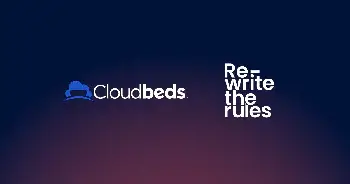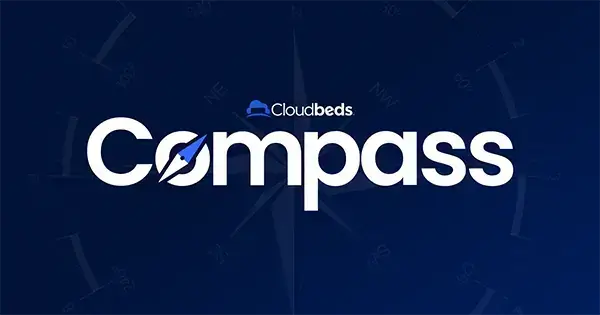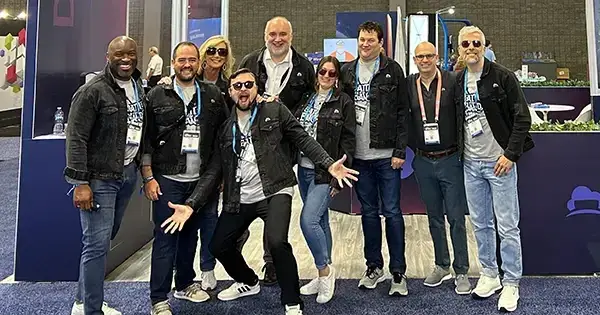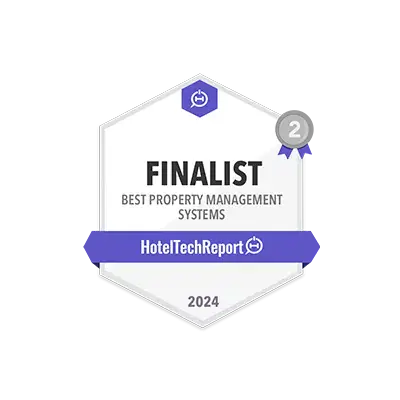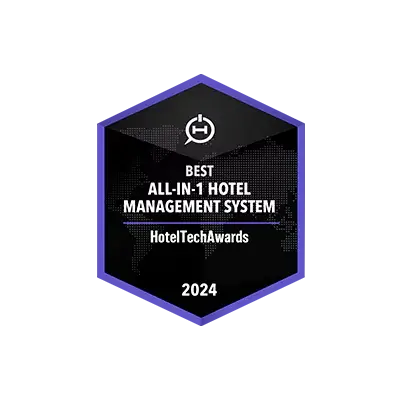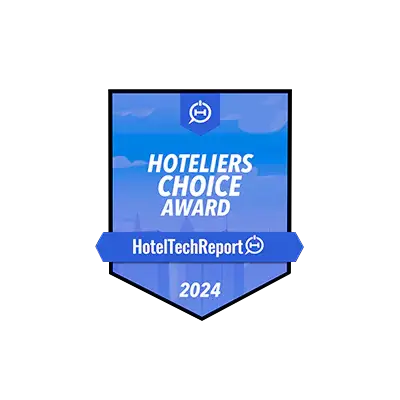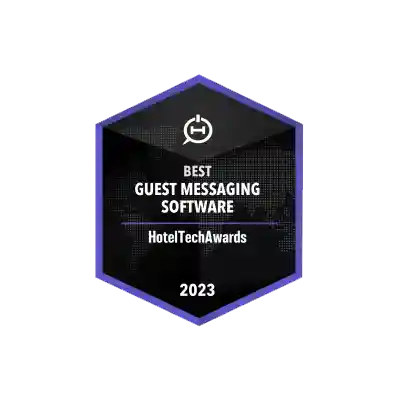
By Richard Castle
The evolution of PMS technology
As hotels plan for a brighter future in the wake of the pandemic, hoteliers and hosts are considering investments in technology that have been put off for years. And many property owners are realizing that now is a better time than ever to upgrade hospitality systems.
As the most important component of a hotel’s technology stack, the property management system (PMS) is commanding a lot of attention. More owners and operators are realizing that the property management solutions of yesterday do not fit the needs of today’s hotels and guests. They are looking for a next-generation system that offers core features and benefits while helping them rebuild and streamline their daily operations.
Whether you operate a large hotel business, small inn, hostel, or vacation rental, making the right PMS investment requires an understanding of how hospitality technology has evolved, where it’s heading, and which features are most important to your long-term success.
A brief history of the hotel Property Management System (PMS)
After first appearing in the late 1970s, property management systems gained traction in the hotel industry throughout the 1980s and 90s. Despite vast improvements in technology over the years, the original intention of the PMS remains the same 50 years later: helping hotels run more efficiently by automating manual and paper-based administrative tasks.
The core functions of the PMS include managing workflows for both back office and front office day operations, like reservations and guest profiles, room inventory and occupancy, pricing and RevPAR, check-in and check-out, housekeeping, invoicing and reporting. Over the years, new functions have been either built into the PMS platform or integrated as third-party applications. Today, accommodation providers can connect the PMS to a range of applications, from an integrated reservation system and revenue management software to an online reputation or maintenance management solution.
But the evolution hasn’t always been smooth. Progress has been slow, and legacy PMS systems have been a source of ongoing frustration for hotel staff due to outdated and inflexible technology, sluggish innovation, and slow and expensive integrations.
Given that a property management system is the biggest tech investment most hotels will make, that’s a big concern. The 2019 Lodging Technology Study found that PMS software received the highest budget allocation by far of any software among the 17,980 hotels represented.
Also, the core functionality of a PMS is just a small subset of the tasks required to run a successful lodging business. As technology and consumer behavior have changed, so too have the roles and responsibilities of hotel managers, expanding well beyond the confines of the property to comprise all aspects of the guest experience. This role shift applies to all types of properties, from hotels and hotel groups to hostels and vacation rentals.
Has the lodging business outgrown the original concept of the PMS?
There’s a lot of debate in the hotel industry these days about the future of the property management system. Some lodging operators expect the PMS – and the ecosystem of hotel software and systems that surround it – to become increasingly decentralized. Others see it becoming more consolidated. Who is right, and how will it affect your property?
To really understand the future of PMS technology, we need to look outside the hospitality industry – and into the palm of our hand. By that we don’t mean fortune-telling, we mean understanding the evolution of the mobile phone.
The platformization of PMS technology
Originally designed for making phone calls on the go, the cell phone has expanded its capabilities exponentially over the years, first adding features like text messaging, contacts, and email, and later evolving into a smartphone with a range of multimedia features like a camera, GPS, and web search.
Today, smartphones operate as a tech platform, providing a foundation of hardware and software upon which other applications and technologies are built. And – believe it or not – some people still even use them to make phone calls!
Products from Facebook, Amazon, and Microsoft have followed a similar path, starting out as limited-purpose software applications and evolving into full-fledged platforms. Some people call this trend “platformization.” And it’s exactly how the PMS is evolving.
The complex world of hotel online distribution
Take, for example, the shift to online travel planning. In the past, travelers called in to a hotel or travel agent to make a reservation, and the PMS was more than adequate to serve the hotel’s needs. Today, most people plan and book trips online. To attract bookings, hotels need a website, digital ads, listings on online travel agencies, and possibly a GDS for those in the corporate travel market. To enable direct bookings, they need a booking engine and a payment gateway. And to optimize daily rates and distribution, hotels require a revenue management system and channel manager. All these functions fall outside the core functionality of the hotel PMS and require specialized software solutions.
Rising traveler expectations
Meanwhile, mobile apps like Uber, Instacart, and DoorDash have conditioned consumers to expect transactions to be mobile-compatible, instant, and seamless. Mobile apps like WhatsApp and social media platforms have conditioned people to expect quick responses to messages and notifications. And self-service kiosks in airports and supermarkets have conditioned consumers to expect the option to serve themselves instead of waiting for an employee.
The challenges of PMS integrations
These expectations have put immense pressure on hotels to keep up with consumer technology. Fortunately, a lot of smart people in hospitality tech have risen to the occasion. With the help of technology, today’s hotel guests can check themselves in online, enter the room with their mobile phone, text guest services for extra towels, and settle their accounts using contactless payment processing.
The problem is, many of these applications have been developed independently of the property management software and may or may not be compatible with a property’s existing tech stack. This leads to data fragmentation, multiple guest profiles, and duplication of efforts. Frustrated guests are kept waiting while staff manually input information, not understanding why they must repeat information they previously provided.
At the root of the problem is a hotel industry dominated by legacy PMS providers that have been slow to innovate and resistant to integrations. When integrations are permitted, it’s often either too cost-prohibitive for the hotel or involves a lengthy and frustrating process. It’s like trying to connect wireless earbuds to a vintage flip phone.
The creation of the Frankenstein tech stack
The good news is, in recent years the accommodation industry has made great strides on the path to connectivity. More PMS solutions are allowing third-party integrations, opening up exciting possibilities for providing a seamless experience for guests and staff.
Sounds fabulous, right? Well, not exactly. Because this so-called hub-and-spoke model has created an entirely new problem for hoteliers: managing the complex patchwork of systems, integrations, and vendors. The hotel tech stack has metastasized into a Frankenstein-like monster that is twice as unmanageable and not even half as intuitive.
Making the system work has become the biggest challenge in hotel technology today. And while open API models such as those offered by modern PMS companies like Cloudbeds have alleviated some of the issues, the predominance of legacy systems in the hospitality business industry remains a major obstacle.
Taming the beast: from Fragmentation to consolidation
We all know how Frankenstein ends: by destroying his creator. Clearly, we need a happier ending for Property management software vendors, but what exactly?
First, it’s important to recognize that the hub-and-spoke model has outlived its usefulness. Hoteliers and their guests want simplicity, not complexity. This is especially true today when high staff turnover is compounded by labor shortages. Staff simply do not have the time to learn and manage a multitude of complex tools and tech providers.
So what’s the solution? Leading experts in the field see the traditional silos of technology converging, in part thanks to the capabilities of cloud computing.
Dave Berkus, the mastermind behind the PMS used by Marriott for decades, told HotelTechReport that he envisions “a single, cloud-based system integrating everything from CRM to reservations to the accounting functions at the properties, all the way through all forms of marketing and follow-through.”
Sharing a similar vision is George Roukas, partner at Hudson Crossing. “Hotel technology will evolve from separate applications to platforms and eventually to ecosystems running discrete capabilities,” he writes in the seminal report, Converged CRS And PMS Are Finally Here! Now What?
The move to cloud-based hotel PMS systems
Fortunately, advances in PMS technology are helping PMS vendors and their hotel clients overcome these challenges. One of the most significant improvements has been the transition from on-premise servers, to hosted solutions, and to the cloud-based solutions of today.
Cloud-based computing, also referred to as SaaS (software-as-a-service), is the delivery of computing services over the internet (“the cloud”). Rather than hosting hardware, software, and data at the hotel, hotels “plug in” to them over the internet. Because cloud systems run on shared resources, hotels pay only for the services they use, resulting in higher efficiency and lower costs as well as better performance and reliability.
The dilemma: migrate the hotel PMS or go straight to the cloud
For legacy PMSs – and the hotels and hotel chains that use them – the transition to cloud-based systems has been challenging. “Cloud technology has been the instigator of major changes, and has left legacy systems that are mostly based on aged on-premise technologies scrambling,” observes Skift in a 2020 report on property management systems. “It has allowed new players to enter the market, and has boosted new business models, including marketplaces and middleware providers.”
For older, established players with complex and feature-rich legacy PMS systems, migrating everything to the cloud is time-consuming and onerous. Few lodging operators can afford the disruption. It has also hindered the speed of product development and innovation for these players.
Meanwhile, newer players have gone straight to the cloud, which has placed them at a distinct advantage. As cloud-native companies, they have never had to worry about migrating older software to the cloud.
The choice is comparable to building a new house or renovating an existing one. It’s much faster to build a house from the ground up than to renovate an older property, which requires tearing down older structures and erecting new ones. And if it’s a heritage property, renovations become even more painstaking and intricate.
What are the advantages of cloud-native PMS software?
Why is everyone moving to the cloud? The benefits are numerous, including better infrastructure, and lower costs of implementation, capital investments, and maintenance. A cloud-based PMS is accessible from anywhere – on your mobile device and anywhere with internet access. This allows hotel managers and staff to operate the hotel and service the needs of guests remotely, in real-time, and 24/7, leading to more efficient business operations and higher guest satisfaction.
Other advantages include:
- Faster implementation. Since there is no hardware or software installation required, there is no lag time; users are instantly on the platform.
- Consistent upgrades. With a cloud-native SaaS, software updates are much faster and more frequent, allowing hotels to benefit from new features and optimization right away. There’s no need to interrupt hotel operations with site visits from technicians, no extended downtimes, and no lengthy onsite training sessions. Installation, upgrades, and maintenance are all done remotely.
- Integrations. Many cloud-native PMS platforms are built with open-source APIs that make integration with other applications much easier and more cost-effective. Much like iPhone users visit the App Store to download mobile applications, hoteliers can browse the PMS provider’s marketplace and select the tools, software, and services that make the best fit for your property. This might include apps that allow you to offer your guests mobile or self-service check-in, keyless entry, or service by text messaging.
What distinguishes cloud-native PMS platforms from one another?
Okay, so clearly, cloud-native is the better model, but are there differences among PMS platforms? Absolutely. That’s why it’s always a good idea to shop around. While doing so, look for Property management software providers that offer the following features.
- Easy to learn, easy to use. Given the high staff turnover in the lodging business, investing a lot of time and resources in training staff on new technology only to have them leave is a waste. By investing in hotel management software that’s user-friendly and intuitive to use, you’ll save on labor costs, increase employee satisfaction, and avoid paying for a lot of extra features that no one uses.
- Seamless integrations. To compete in the complex world of online distribution, you need access to other core systems aside from the PMS. This includes a website booking engine, channel manager, revenue management system, and payment processor. If your PMS provider builds these systems in-house and connects them seamlessly, you’ll avoid the pitfalls of dealing with too many vendors and disconnected tools. For example, when the front desk extends a guest’s stay, availability is automatically updated on your booking engine, OTAs, and other distribution channels, helping you prevent accidental overbookings.
- Service & support. Considering how vital a PMS platform is to the success of your business, you are also well advised to take a close look at the customer support offered by your PMS provider. You can’t afford to work with a company that treats you like just another number in the ticketing system and won’t answer your questions on weekends. You need 24/7/365 support from a team of in-house hospitality specialists who understand the unique needs of independent properties. A trusted partner will not only solve your problem but will also help you discover new opportunities to improve your business.
Behold, the hotel PMS as an open platform
Much like with smartphones, we’re now seeing the platformization of the PMS. How does it work? The platform provider purpose-builds a suite of core applications in-house and fully integrates them with the PMS, including a booking engine, channel manager, revenue management system, payments solution, and other digital marketing and guest experience tools. For added features, there’s a marketplace of third-party apps for hotels to browse and an open API for custom integrations. For example, if a hotel has a restaurant, they should be able to have the option to integrate their PMS with a restaurant point of sale (POS) so that guests could charge their food and beverage purchases to their room and have all their charges posted on one guest folio.
Apple and Google take a similar approach with mobile platforms, developing proprietary versions of core features like maps, camera, and web search. Users can perform most major smartphone functions without downloading a single third-party app. For everything else, there’s the app store.
The PMS platform: a single source of truth
Within a PMS platform, hoteliers have the tools they need to maximize profits, increase operational efficiency, and deliver memorable guest experiences. There is only one sign-in, one system to learn, and one dashboard used by all departments. And there is only one point of contact for customer support and problem-solving.
Since data is consolidated into a single guest profile, there are none of the issues associated with manual inputs and duplication of tasks. As Berkus said, “Then we have a single guest name record that doesn’t have to pass through from one system to another to be validated that they are the same … all of those things go away.”
Even better, the system is cloud-native, which means it’s built for delivery over the internet rather than the traditional on-premise model. The PMS platform acts as software-as-a-service (SaaS), with most hardware, software, and data housed in the cloud rather than on property. This means no painful migration to the cloud, no lengthy installation process, and minimal downtime. It also means lower costs, more frequent upgrades, and easy customization to meet the unique needs of each property.
The hospitality platform of the future
Now imagine that these systems are so seamlessly integrated, we can drop the PMS descriptor entirely. It simply becomes a “hospitality platform.”
Whatever we may call it, it’s clear that the concept of the PMS has evolved considerably. The hospitality platform of the future will be evaluated not solely on individual features and functionality but also on other critical factors, including:
- Democratization. Does it serve the broadest possible range of customers, allowing properties of all types and sizes to compete on a level playing field?
- Usability. Is it quick for staff to learn, user-friendly, and intuitive?
- Automation. Does it minimize the amount of manual labor required by staff?
- Integration. Do all the tools and features work together to provide a holistic view of the business and a single authoritative source of guest data?
- Data intelligence. Does it provide insights and reporting to enable lodging operators to make well-informed decisions to improve their business?
Sound too good to be true? In fact, the PMS of the future is already here.
Why is now the best time to switch to a cloud-native PMS?
The pandemic has drastically disrupted the lodging industry, first with forced closures and now with unpredictable periods of busy times and slow times. To navigate the ups and downs, you need a flexible, nimble PMS system that can be scaled up or down to meet your needs. Now is the ideal time to take advantage of slow periods and switch systems while minimizing the short-term impact on your business.
Once the exclusive domain of large hotels and chain properties, the PMS is now a must-have for all types of lodging businesses, from large, independent hotels to small hotels, inns, hostels, and even vacation rental properties. Even newer models like short-term rentals and aparthotels are getting into the action, using PMS software to better manage their properties.
The key is to find a flexible, customizable, and cloud-native system that meets the unique needs of your property. In this critical time of post-pandemic recovery, businesses that don’t adapt to the changing times risk being left behind. Those that embrace the PMS of today and invest wisely will be well-positioned at the forefront of recovery.
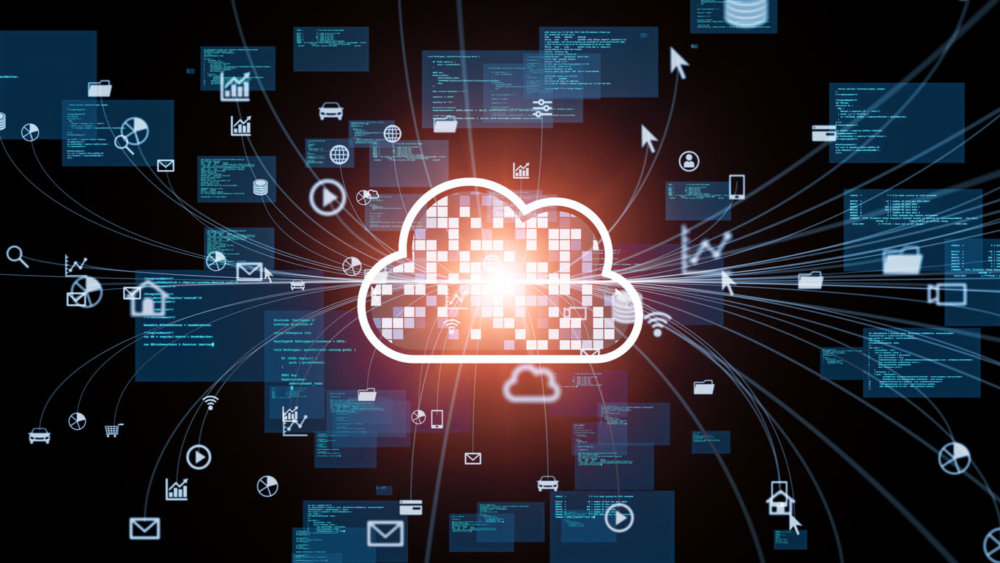
Why choose Cloudbeds PMS?
With the evolution of the PMS to cloud-based systems, it’s no surprise that Cloudbeds is the fastest-growing hospitality management platform in the world. Here are just a few of the reasons why hoteliers and hosts are choosing Cloudbeds:
- A cloud-native system offering all the advantages listed above
- A clean, intuitive dashboard that’s quick to learn and easy to use
- Seamless integration with an online booking engine, channel manager, revenue management system, payments processor, and other essential hotel applications
- Top customer support provided by hotel industry specialists
- Voted #1 PMS by hoteliers in the 2022 HotelTechAwards

